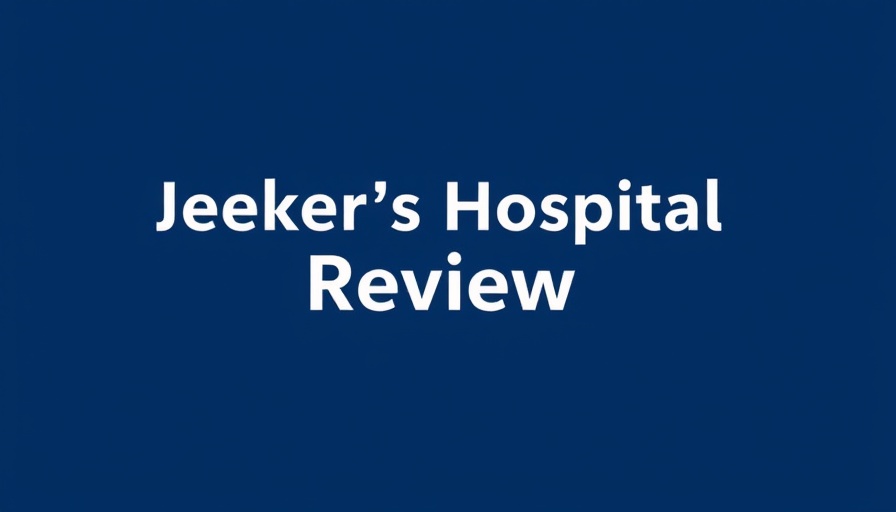
What’s the Risk? Understanding DOGE's Access to Sensitive HHS Systems
Recent revelations about DOGE’s access to 19 systems managed by the U.S. Department of Health and Human Services (HHS) have raised significant concerns among healthcare professionals and policy makers. A court filing obtained by Wired highlights that besides known systems, nine were previously undisclosed, making their oversight even more alarming. With protections governing health information, adequate safeguarding of personal data becomes paramount.
Understanding the Scope of Access
The 19 identified systems tap into sensitive data ranging from email addresses to Social Security numbers and medical records. This underscores a critical need for awareness regarding data handling and compliance in healthcare settings, particularly as independent medical practices navigate increasing regulatory requirements. The details reveal that the systems accessed serve functions essential to healthcare operations:
- CMS Acquisition Lifecycle: A critical tool in managing government contracts related to Medicare and Medicaid.
- NIH Electronic Research Administration: This system manages research grant applications, shaping the funding landscape in healthcare research.
- Financial Business Intelligence Systems: Essential for reporting and analysis of financial data across HHS, impacting budgeting for various health initiatives.
Navigating Compliance in Healthcare Data Management
As data breaches increase in the healthcare sector, understanding compliance becomes vital. The health community must be proactive in ensuring practices use HIPAA-compliant automation solutions. The unauthorized access reported can lead to compromised patient trust and significant fines. Practices should evaluate their existing healthcare compliance protocols against these findings to bolster their security measures.
The Importance of Employee and Patient Trust
The implications of DOGE's access extend beyond mere data retrieval; they could impact employee morale and patient trust dramatically. Independent physicians and nurses must recognize that safeguarding patient information directly correlates with retaining their client base, especially in environments where patient engagement is crucial. This incident may inspire practices to explore employee health benefits that prioritize data security—motivating staff and ensuring patients feel safe and valued.
Future Trends in Data Security and Patient Care
With trends shifting toward digitization, future-proofing practices through technologies such as telehealth revenue and digital front desks will be essential. Telehealth is becoming a fixture in healthcare delivery, and as such, ensuring the protection of stored data will not only comply with regulations but also preserve practice viability. Implementing patient engagement tools that are secure can help in optimizing their overall experience.
Actionable Steps for Practices
Independent medical practices must take ownership of their data security practices. Here are some actionable steps to consider:
- Conduct a thorough evaluation of existing systems for compliance and vulnerability against unauthorized access.
- Invest in training staff about HIPAA regulations and proper data management techniques.
- Utilize automation tools that confirm data protection while streamlining workflows.
Conclusion: Staying Ahead of Compliance Challenges
As healthcare continues to navigate complex technological landscapes, understanding the implications of findings such as DOGE's access to HHS systems is paramount. Independent medical professionals can contribute to a culture of safety by engaging in continuous learning, embracing compliance solutions, and reinforcing practices that enhance patient confidence.
Every healthcare provider should reassess their approach to data management—building trust among patients and healthcare stakeholders is an ongoing journey. The revelations about DOGE's access are a clarion call for all in the field to prioritize security in every aspect of operations, from patient engagement tools to financial transactions.
 Add Row
Add Row  Add
Add 




 Add Row
Add Row  Add
Add 

Write A Comment